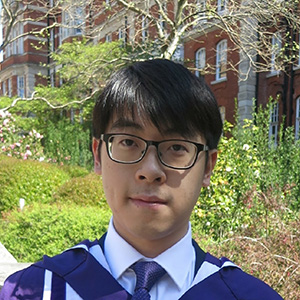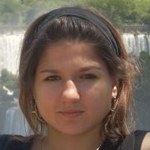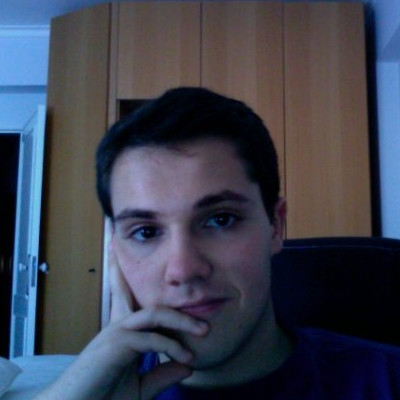Talks & Presentations
Recent invited talks and presentations from our group.
Multiparty Session Types and their Applications
Université Pierre et Marie Curie Paris 6, Dec 2016
We give a summary of our recent research developments on multiparty session types for verifying distributed, parallel and concurrent programs, and our collaborations with industry partners. We shall first outline the multiparty session types and then explain how we started collaborations with industry to develop a protocol description language called Scribble. We then talk about the recent developments in Scribble, the runtime session monitoring framework used in Ocean Observatories Initiative and network protocol verifications. We also demonstrate how our multiparty session synthesis theory is applied to Zero Deviation Life Cycle project with Cognizant; and static deadlock analysis for Google’s Go language.
Compositionality and Session Types
Compositionality workshop, Simon's Institute for the Theory of Computing, University of California, Berkeley, Dec 2016
I shall talk about a difficulty to extend session types to be compositional in several contexts: multiparty session types, communicating automata and Linear Logic. I also talk about several solutions – some of them are motivated by practical applications of the session types.
Building Graphical Choreographies From Communicating Machines: Principles and Applications
Seminaire Preuves, programmes et systèmes, University Paris-Diderot / IRIF, Nov 2016
Graphical choreographies, or global graphs, are general multiparty session specifications featuring expressive constructs such as forking, merging, and joining for representing application-level protocols. Global graphs can be directly translated into modelling notations such as BPMN and UML. In the first part of the talk, I will first present an algorithm whereby a global graph can be constructed from asynchronous interactions represented by communicating finite-state machines (CFSMs); and a sound characterisation of a subset of safe CFSMs from which global graphs can be constructed. In the second part, I will outline a few recent applications of this work to communicating timed automata and the Go programming language.
Session Types and their Open Problems
COST Action BETTY final meeting, NOVA University of Lisbon, Portugal
μServices and Scribble, a.k.a. Scribble @ ThoughtWorks
COST Action BETTY final meeting, NOVA University of Lisbon, Portugal
BETTY final project meeting keynote
Multiparty Session Types and their Applications to Concurrent and Distributed Systems
Papers We Love Conference / Strange Loop 2016 preconference, St. Louis, MO, Sept 15-17, 2016
Nobuko Yoshida’s talk will present a summary of recent papers on multiparty session types for verifying distributed, parallel and concurrent programs, illustrating how theoretical work is grounded on collaborations with industry partners. This research led to the development of the protocol description language Scribble and other work such as static deadlock analysis in Go.

Building Graphical Choreographies From Communicating Machines: Principles and Applications
Computer Science Colloquium, University of Southern Denmark, Aug 2016
Graphical choreographies, or global graphs, are general multiparty session specifications featuring expressive constructs such as forking, merging, and joining for representing application-level protocols. Global graphs can be directly translated into modelling notations such as BPMN and UML. In the first part of the talk, I will first present an algorithm whereby a global graph can be constructed from asynchronous interactions represented by communicating finite-state machines (CFSMs); and a sound characterisation of a subset of safe CFSMs from which global graphs can be constructed. In the second part, I will outline a few recent applications of this work to communicating timed automata and the Go programming language.
Static Deadlock Detection for Go
GolangUK 2016, 17-19 Aug 2016
Go’s concurrency features differ from mainstream programming languages in that they are based on the high-level and formal model of CSP (or process calculi) by Tony Hoare in 1978. Over the years, a large body of research work was developed for understanding concurrency based on process calculi, but rarely applied directly in programming languages. I will talk about a static analyser we developed for detecting deadlocks in Go, inspired by a research area which gives “types” to process calculi. In a nutshell, the tool infers “types” for communication between goroutines from Go source code, then construct a bird’s eye view of all communication (also called choreography or global graph) possible at runtime, through which deadlocks and communication problems are discovered.
This talk will focus on the work-in-progress aspects of the tool. No knowledge of CSP/process calculi are needed but some understanding of concurrency in Go and static analysis concepts are expected.
Synthesis of Multiparty Session Types
Nagoya University, Jul 2016
Multiparty session types are a type system that can ensure the safety and liveness of distributed peers via the global specification of their interactions. To construct a global specification from a set of distributed uncontrolled behaviours, this talk explores the problem of fully characterising multiparty session types in terms of communicating automata. We equip global and local session types with labelled transition systems (LTSs) that faithfully represent asynchronous communications through unbounded buffered channels. Using the equivalence between the two LTSs, we identify a class of communicating automata that exactly correspond to the projected local types. We exhibit an algorithm to synthesise a global type from a collection of communicating automata. The key property of our findings is the notion of multiparty compatibility which non-trivially extends the duality condition for binary session types.
At the end of the talk, I also show a couple of applications of the synthesis theory of multiparty session types.
Synthesis of Multiparty Session Types
National Institute of Informatics (NII), July 2016
Multiparty session types are a type system that can ensure the safety and liveness of distributed peers via the global specification of their interactions. To construct a global specification from a set of distributed uncontrolled behaviours, this talk explores the problem of fully characterising multiparty session types in terms of communicating automata. We equip global and local session types with labelled transition systems (LTSs) that faithfully represent asynchronous communications through unbounded buffered channels. Using the equivalence between the two LTSs, we identify a class of communicating automata that exactly correspond to the projected local types. We exhibit an algorithm to synthesise a global type from a collection of communicating automata. The key property of our findings is the notion of multiparty compatibility which non-trivially extends the duality condition for binary session types.
At the end of the talk, I also show a couple of applications of the synthesis theory of multiparty session types.
Multiparty Session Types and their Applications
NJ Programming Languages and Systems Seminar, University of Pennsylvania, May 2016
We give a summary of our recent research developments on multiparty session types for verifying distributed, parallel and concurrent programs, and our collaborations with industry partners. We shall first outline the multiparty session types and then explain how we started collaborations with industry to develop a protocol description language called Scribble. We then talk about the recent developments in Scribble, the runtime session monitoring framework used in Ocean Observatories Initiative and network protocol verifications. We also demonstrate how our multiparty session synthesis theory is applied to Zero Deviation Life Cycle project with Cognizant; and static deadlock analysis for Google’s Go language.
Multiparty Session Types and their Applications
Departmental Seminar, School of Computer Science, The University of Manchester, May 2016
We give a summary of our recent research developments on multiparty session types for verifying distributed, parallel and concurrent programs, and our collaborations with industry partners. We shall first introduce the multiparty session types and then explain how we started collaborations with industry to develop a protocol description language called Scribble. We then talk about the recent developments in Scribble, the runtime session monitoring framework used in Ocean Observatories Initiative and network protocol verifications. We also demonstrate how our multiparty session synthesis theory is applied to Zero Deviation Life Cycle project in Cognizant; and static deadlock analysis for Google’s Go language.
Multiparty Session Types and their Applications
Computer Science Seminar Series, Computer Science Division, School of Science and Technology, University of Camerino, Italy, April 2016
We give a summary of our recent research developments on multiparty session types for verifying distributed, parallel and concurrent programs, and our collaborations with industry partners. We shall first introduce the multiparty session types and then explain how we started collaborations with industry to develop a protocol description language called Scribble. We then talk about the recent developments in Scribble, the runtime session monitoring framework used in Ocean Observatories Initiative and network protocol verifications. We also demonstrate how our multiparty session synthesis theory is applied to Zero Deviation Life Cycle project in Cognizant; and static deadlock analysis for Google’s Go language.
Phil & Session Types / Session Types & Linear Logic
WadlerFest - In celebration of Philip Wadler's 60th birthday, Informatics Forum, Edinburgh, Apr 2016
The Upscale project: Actors and sessions
Celebration Event for Frank de Boer's 60th Birthday, Eindhoven Univesity of Technology, The Netherlands
An overview of multiparty session types
Language Based Verification Tools for Functional Programs (Dagstuhl Seminar 16131), Schloss Dagstuhl, Germany, April 2016
Multiparty Session Types And Their Applications
Center for Mathematics and Statistics, University of Novi Sad, Serbia, March 2016
We give a summary of our recent research developments on multiparty session types for verifying distributed and concurrent programs, including our collaborations with industry partners and NSF-funded project (Ocean Observatories Initiatives). The OOI provides an ultra large-scale cyberinfrustracture (OOI CI) for 25-30 years of sustained ocean measurements to study climate variability, ocean circulation and ecosystem dynamics. We shall first talk how Robin Milner, Kohei Honda and Yoshida started collaborations with industry to develop a web service protocol description language called Scribble and discovered the theory of multiparty session types through the collaborations with Red Hat. We then talk about applications of Scribble to the runtime session monitoring framework used in the OOI and Scala verification. We also summarise more recent results and applications using Multiparty Session Types.
Verify me if you can: Supervisors, Actors and Session Types
UPMARC Seminars, Uppsala University, Feb 2016
Actor coordination armoured with a suitable protocol description language has been a pressing problem in the actors community. We study the applicability of multiparty session type protocols for verification of actor programs. We incorporate sessions to actors by introducing minimum additions to the model such as the notion of actor roles and protocol mailboxes. The framework uses Scribble, which is a protocol description language based on multiparty session types. Our programming model supports actor-like syntax and runtime verification mechanism guaranteeing communication safety of the participating entities. The usage of multiple roles allows safe cooperative interconcurrency in a single actor. We present the design of our session actor library in Python, which is evaluate by implementing twelve use cases from an actor benchmark suit. Benchmarks demonstrate that the runtime checks induce negligible overhead. We also present a recent work incorporating the session actors model into Erlang, where session types are used for faster error recovery on top of Erlang supervision trees.
Session types and their applications
Lecture at 'Journées Francophones des Langages Applicatifs', JFLA 2016, Saint-Malo, France, January 2016
Multiparty Session Types and their Applications
PLAS Group Seminar at University of Kent, December 2015
We give a summary of our recent research developments on multiparty session types for verifying distributed, parallel and concurrent programs, and our collaborations with industry partners. We shall first talk how the session types were discovered from the theory of the pi-calculus, and how we started collaborations with industry to develop a protocol description language called Scribble. We then talk about the recent developments in Scribble, the runtime session monitoring framework used in Ocean Observatories Initiative and network protocol verifications with demos. We also talk how our synthesis theory is applied to Zero Deviation Life Cycle project with Cognizant. Finally we show how multiparty session types are used to generate safe MPI code.
Multiparty Session Types and their Applications
Distinguished Seminar Series, School of Computing and Communications, Lancaster University, December 2015
We give a summary of our recent research developments on multiparty session types for verifying distributed and concurrent programs, and our collaborations with industry partners and a major, long-term, NSF-funded project (Ocean Observatories Initiatives) to provide an ultra large-scale cyberinfrustracture (OOI CI) for 25-30 years of sustained ocean measurements to study climate variability, ocean circulation and ecosystem dynamics. We shall first talk how Robin Milner, Kohei Honda and Yoshida started collaborations with industry to develop a web service protocol description language called Scribble and discovered the theory of multiparty session types through the collaborations. We then talk about the recent developments in Scribble and the runtime session monitoring framework used in the OOI CI. Finally we summarise our recent other results on Multiparty Session Types.
Multiparty Asynchronous Session Types and their Applications
15th International School on Formal Methods for the Design of Computer, Communication and Software Systems: Multicore Programming, Bertinoro, Italy, June 2015
From Communicating Machines to Graphical Choreographies
Logic and Semantics Seminar, University of Cambridge, May 2015
Graphical choreographies, or global graphs, are general multiparty session specifications featuring expressive constructs such as forking, merging, and joining for representing application-level protocols. Global graphs can be directly translated into modelling notations such as BPMN and UML . In this talk, I will present (i) an algorithm whereby a global graph can be constructed from asynchronous interactions represented by communicating finite-state machines (CFSMs); and (ii) a sound and complete characterisation of a subset of safe CFS Ms from which global graphs can be constructed.






